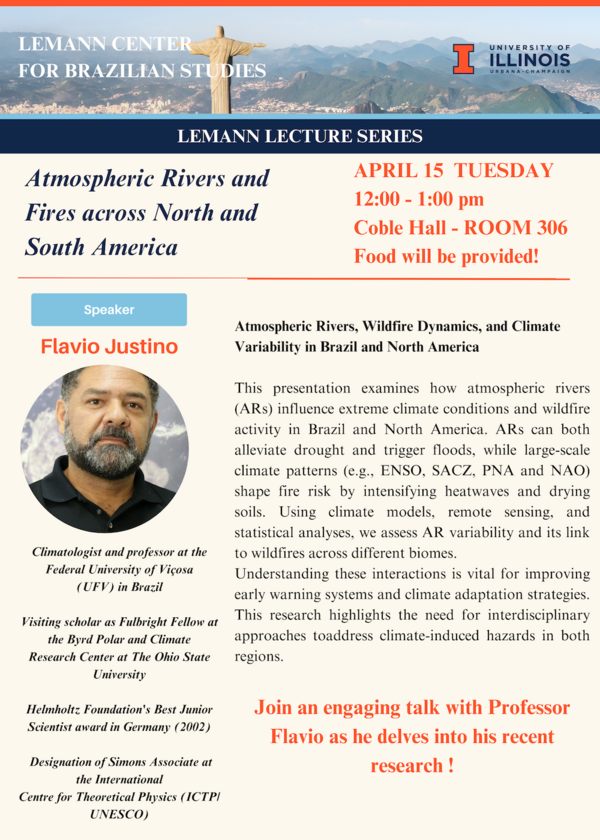
Atmospheric Rivers and Fires across North and South America
- Event Type
- Lecture
- Sponsor
- Lemann Center for Brazilian Studies
- Location
- Coble Hall Room 306
- Date
- Apr 15, 2025 12:00 pm
- Views
- 86
- Originating Calendar
- Lemann Center Events
This presentation examines how atmospheric rivers (ARs) influence extreme climate conditions and wildfire activity in Brazil and North America. ARs can both alleviate drought and trigger floods, while large-scale climate patterns (e.g., ENSO, SACZ, PNA and NAO) shape fire risk by intensifying heatwaves and drying soils. Using climate models, remote sensing, and statistical analyses, we assess AR variability and its link to wildfires across different biomes. Understanding these interactions is vital for improving early warning systems and climate adaptation strategies. This research highlights the need for interdisciplinary approaches to address climate-induced hazards in both regions.
Flávio Justino is a distinguished climatologist and professor at the Federal University of Viçosa (UFV) in Brazil. He completed his Ph.D. in meteorology at the Leibniz-Institute of Marine Research in Germany. Furthering his academic pursuits, Prof. Justino undertook postdoctoral research in atmospheric sciences at the University of Toronto, Canada. During the 2015–2016 academic year, he was a visiting scholar as Fulbright Fellow at the Byrd Polar and Climate Research Center at The Ohio State University. Prof. Justino's research focuses on ocean-atmosphere interactions, climate variability and change across different time scales, climate extremes, and the implications of climate on agriculture and food security. His contributions have been recognized with several accolades, including the Helmholtz Foundation's Best Junior Scientist award in Germany (2002) and the designation of Simons Associate at the International Centre for Theoretical Physics (ICTP/UNESCO). At UFV since 2006, Prof. Justino has mentored numerous graduate students, supervising 21 master's and 22 Ph.D. candidates. His collaborative efforts with international colleagues have resulted in over 90 peer-reviewed publications.